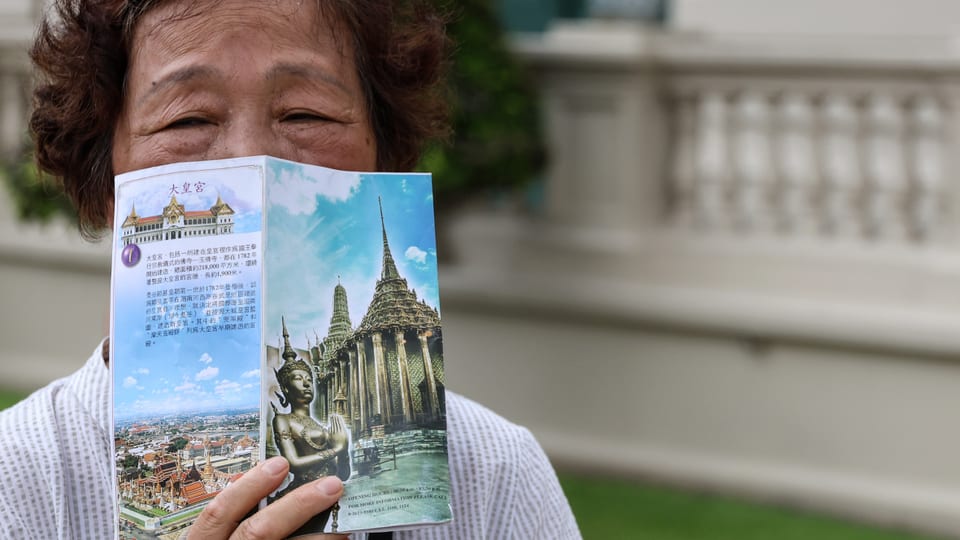Contents
A killing spree and a blood-curdling thriller reinforce the trend: the Chinese are strangers to Thailand.
The pulsating metropolis of Bangkok, breathtaking temples, untouched mountain landscapes and countless dream islands that offer everything from yoga retreats to fun – at least that’s how the tourism industry advertises Thailand.
However, this falls on deaf ears for many Chinese people: they ignore Thailand. Before the pandemic, a quarter of foreign travelers came from the giant empire. Now it’s only a fraction of that.
Legend:
In 2019, eleven million of the foreign visitors came from China. For the current year, only around five million tourists are expected from China.
Valeria Mongelli/Bloomberg via Getty Images
Martin Aldrovandi, SRF correspondent in Bangkok, explains the decline in visitors: “Recently, a shooting spree in a large shopping center in the middle of Bangkok has also contributed to this.” A 14-year-old shot three people – including a Chinese mother with children. “This was widely reported in China, which was followed by many cancellations of trips to Thailand.”
Immediately after the shooting, Thai Prime Minister Srettha Thavisin met with the Chinese ambassador in Bangkok and also emphasized on Chinese television that Thailand is a safe country.
Blockbuster triggers fears
The desire to travel was also dampened by a Chinese blockbuster that was released in the summer: “No More Bets” is about gangs that lure Chinese people to Southeast Asia and force them into the criminal environment there.
Shabby, sinful and crime-infested: the thriller reinforces clichés about Thailand that are already rampant in China. They become further anchored in the collective consciousness.
In addition to security concerns, there are monetary considerations: “Due to the current economic situation in China, people are consuming less anyway. Domestic consumption is still not at the level it was before the pandemic,” explains the correspondent. “This also has an impact on tourism.”
Government abolishes visa requirements
In order to attract more Chinese tourists to the country again, the Thai government has relaxed the entry regulations – for example, a visa is no longer required to enter the country.
There are many people here who are upset about the Chinese visitors.
While the tourism industry bitterly complains about the absence of the Chinese, things are different for the Thai population. “There are a lot of people here who are upset about the Chinese visitors,” says Aldrovandi. “The large tour groups from China in particular were sometimes perceived as loud and rowdy.”

Legend:
A picture from happier days: Even before the pandemic, tourism from China was booming – like here on the island of Ko Samet.
David Silverman/Getty Images)
The Russians are stepping into the breach: They have replaced the Chinese as the most important group of foreign visitors on the holiday island of Phuket. The problem is that many people also see them as loud and rowdy. In addition, some of them settle in Thailand themselves and enter the tourism business – much to the displeasure of the locals.
There is no end to overtourism in sight
Thailand has long been suffering from mass tourism from all over the world. Overtourism not only upsets the locals, but also has ecological consequences – for example for the coral reefs or through the widespread deforestation of islands to build hotel complexes.
But a return to gentler tourism is not really up for debate, concludes Aldrovandi. “The entire infrastructure, including huge hotel resorts, is designed for mass tourism. Too many industries depend on it to do without it.”
